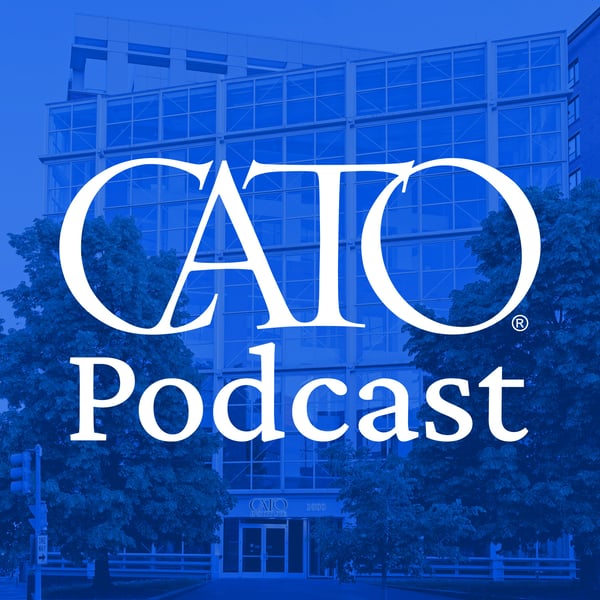Best of Cato Daily Podcast: The Fabric of Civilization: How Textiles Made the World
Cato Podcast
Cato Institute
4.6 • 949 Ratings
🗓️ 12 June 2025
⏱️ 17 minutes
🧾️ Download transcript
Summary
Caleb O. Brown hosted the Cato Daily Podcast for nearly 18 years, producing well over 4000 episodes. He has gone on to head Kentucky’s Bluegrass Institute. This is one among the best episodes produced in his tenure, selected by the host and listeners.
Textiles are everywhere, and before the Industrial Revolution, even tiny advances in textile development had massive ripple effects. Virginia Postrel traces this amazing history in The Fabric of Civilization: How Textiles Made the World.
Hosted on Acast. See acast.com/privacy for more information.
Transcript
Click on a timestamp to play from that location
| 0:00.0 | This is longtime Cato Daily podcast host, Caleb Brown. After thousands of episodes over nearly 18 years, I've moved on from the Cato Daily podcast, but in the interim, I, along with some of you, have selected some favorites. I hope they resonate with our current moment and continue to spark the desire to defend liberty. Thank you for listening. This is the Cato Daily podcast for Friday, December 4th, 2020. I'm Caleb Brown. |
| 0:29.7 | Textiles are a pretty obvious necessity, but a good bit of the history of innovation and the |
| 0:34.6 | world are told through their development. Virginia Postrelle is author of The Fabric of Civilization, How Textiles Made the World. |
| 0:42.5 | We spoke last month. |
| 0:43.5 | Whenever you read books about economic development, the first stage of economic development |
| 0:49.8 | always implicates textiles. |
| 0:52.5 | And I guess it's only in the last 300 years or so that we've had |
| 0:56.4 | additional stages of economic development that have been allows countries to exit that |
| 1:04.5 | stage, that early stage that we, well, we think of now as an early stage, which is textiles. |
| 1:09.9 | But you tell a story here, and I've come to appreciate over the years that when you write something, even if I think the premise is kind of weird, that I'm going to really enjoy it. And I really did enjoy reading much of this book. So historically speaking, why are |
| 1:31.1 | textiles so important? Well, there are a couple of answers to that question. One is just |
| 1:35.8 | textiles are everywhere. It's not just our clothes, which is the first thing we think of. It's |
| 1:42.3 | blankets. It's bandages. |
| 1:45.9 | It's tents and sails, which are more important historically than they are today, although |
| 1:52.2 | tents certainly are still a major use. |
| 1:55.8 | It's various kinds of sacks and bags and wrappings. |
| 2:02.6 | They're just everywhere, everything from seatbelts to fire hoses. |
| 2:09.5 | And so when you have something that's that ubiquitous, anything that increases its quality or lowers its cost or changes the amount of labor that needed to produce it has ripple effects throughout the economy and throughout society and the way people live. |
| 2:31.9 | So that's one answer. That's the more people live. So that's one answer. |
| 2:35.8 | That's the more general answer. |
| 2:38.5 | The more specific historical answer, which I go into and more depth in the book, |
| 2:46.2 | has to do with the Industrial Revolution and spin it. |
... |
Please login to see the full transcript.
Disclaimer: The podcast and artwork embedded on this page are from Cato Institute, and are the property of its owner and not affiliated with or endorsed by Tapesearch.
Generated transcripts are the property of Cato Institute and are distributed freely under the Fair Use doctrine. Transcripts generated by Tapesearch are not guaranteed to be accurate.
Copyright © Tapesearch 2025.

